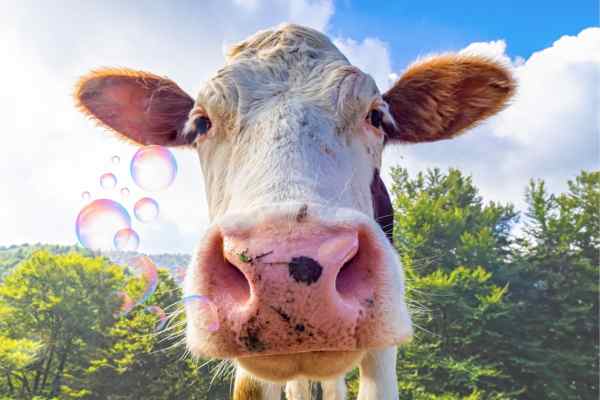Breath test tackles methane
A new livestock sensor is joining the agricultural movement to curb greenhouse gases.

Australia is taking another step in the fight against methane emissions, this time with the help of a new breath test for cattle.
Methane from animal burps, especially cattle, has been a big target for innovators, and the latest solution is a breath analyser that measures methane levels in livestock.
Developed by startups Optiweigh and Agscent, this device helps farmers and researchers keep track of their emissions.
The breath sensor works out in the field, using molasses or salt blocks to attract cattle. When the cows come close, they are weighed, identified, and their methane levels are recorded.
This invention recently secured an ARC Discovery Grant from Macquarie University, and its creators have plans to take it beyond Australia to other countries.
Number crunch
Precise monitoring like this, they say, is key to understanding how methane emissions differ between individual animals and farming practices.
It could also help in testing new feed supplements aimed at busting those infamous cattle burps.
The breath analyser is part of a larger push to tackle methane emissions, a greenhouse gas that’s 28 times more potent than carbon dioxide. According to a new report, agriculture is responsible for about half of Australia’s total methane emissions, making it a major contributor to the country's greenhouse gases.
The Global Methane Budget 2024, released this month, highlighted that methane emissions from human activity have risen by 20% over the last two decades.
“We have seen higher growth rates for methane over the past three years, with a record high in 2021," CSIRO’s executive director for the Global Carbon Project Pep Canadell said. "Methane concentrations are now 2.6 times higher than pre-industrial levels."
"We’re changing feed to feed positive change, helping farmers grow the food we love, without the emissions."
Feed supplements is another category that’s making strides. One promising discovery is the use of the red seaweed species Asparagopsis, which significantly reduces methane burps when added to cattle diets. CSIRO’s FutureFeed holds global rights for this seaweed and has teamed up with companies like Tasmania’s Sea Forest to scale up its production.
However, while seaweed shows promise, some experts say it's tough to scale. That’s where Perth-based startup Rumin8 steps in. Last year, the company raised AUD$17 million from Bill Gates’ Breakthrough Energy Ventures and is working on isolating the bioactive compounds in seaweed to create a more scalable solution without large-scale ocean farming.
Yeast Power
Meanwhile, Sydney-based biotech company Number 8 Bio is making its own moves by bioengineering yeast to mimic the molecules in seaweed. This method, the startup says, allows for large-scale fermentation that could cut methane emissions by up to 90%, all while boosting meat, milk, and wool production.
Number 8 Bio recently raised $7 million in seed funding to scale production, accelerate product development, and expand trials, and is backed by CSIRO’s venture capital group, Main Sequence Ventures, alongside Breakthrough Victoria and The March Group.
"To feed a rapidly growing population on a warming planet, there have to be multiple solutions. We all need to do our part," the startup's CEO and co-founder Dr Tom Williams said. "At Number 8 Bio, we’re changing feed to feed positive change, helping farmers grow the food we love, without the emissions."
Main Sequence partner Gabrielle Munzer said: “Methane mitigation is critical to protect our planet, and the Number 8 Bio team is leading the way with their impressive trials.
"As we face the urgent need for climate action, Number 8 Bio is at the forefront, offering practical, scalable solutions to reduce methane emissions from livestock."





